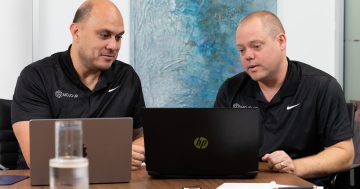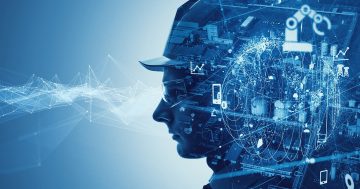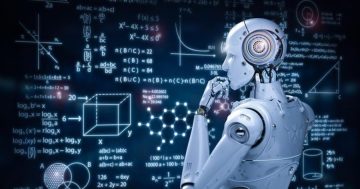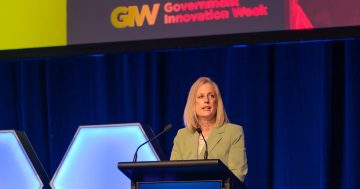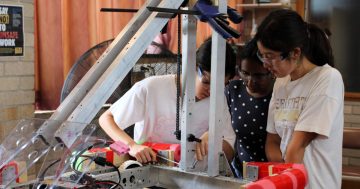Worries about the increasing use of artificial intelligence in the workplace continue to bubble just below the surface. Cayla Dengate* asks some industry experts for their views of where AI will take us.
 Have you ever genuinely thought your job could be done by an artificial intelligence program or robot?
Have you ever genuinely thought your job could be done by an artificial intelligence program or robot?
For many, it has always felt like a distant worry, but the emergence of AI art, video, algorithms and more have shown how ubiquitous and unstoppable this change really is.
Perhaps you’ve seen the Lensa AI portraits flying around social media, or complaints from artists who allege the work is so similar to their own, it constitutes a copyright breach.
Suddenly, it’s not just cashiers and factory employees worrying about the rise of automation.
It’s also creative workers like illustrators, script writers, taste makers and content producers.
What advice do tech leaders have for those who are worried about their industry’s future?
How can job seekers find a future-proofed role that will evolve alongside AI?
I asked leaders in tech and innovation to share their insights.
Nick Abrahams of Norton Rose Fulbright says that in a perfect future, we will “use AI to augment, not replace humans”, so how do we get there?
Aruna Pattam of Capgemini reminds us that AI has been used for good in countless ways — from finding new drugs to improving transport systems.
However, she says that’s no reason for workers and job seekers to bury their heads in the sand.
“There is no doubt that AI and automation will lead to the disappearance of many jobs that have traditionally been done by humans,” Ms Pattam says.
She believes it will likely be up to business owners to give staff the chance to reskill.
“Businesses can incorporate this technology in a responsible way by ensuring that their employees are given the opportunity to learn new skills and adapt to the changing landscape,” she says.
“By being proactive and helping their employees adapt to these changes, businesses can ensure they are able to take advantage of the opportunities that AI and automation provide, while also being responsible members of the community.”
Karissa A. Breen of KBI.Media says change brings about opportunity for those ready and willing to adapt.
“New jobs will be created — it’s just hard to see that as we don’t have the benefit of hindsight,” Ms Breen says.
“It will mean that employees can focus on doing more strategic tasks, rather than repetitive tasks that could be easily handled by machines.”
Elisa Choy of Maven Data sees AI as a force for good in the current economy, with the power to create greater insights than was previously possible.
“We use AI for good to predict future market trends,” she says.
“Our recent success in the Australian Federal election and the United States Mid-terms provided a much-needed perspective on ‘what’s going on’ for the public.
“AI, like any tool, can be used for good or evil.
“It’s not the technology to blame; it’s the people using the technology that need to have integrity and ethics.”
*Cayla Dengate is a senior news editor at LinkedIn. Based in Sydney, she advises job seekers on how to get hired. She can be contacted at linkedin.com/in/cayladengate.
This article first appeared at LinkedIn.




